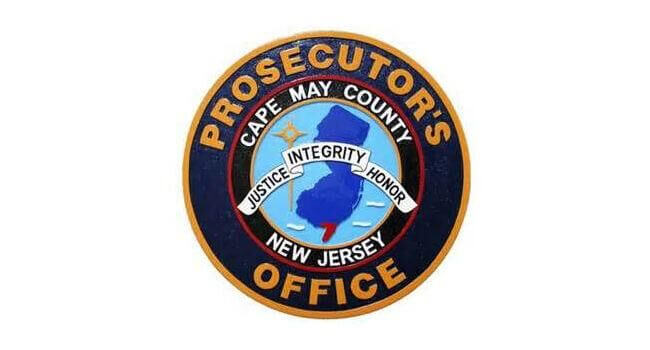Get ‘The Wrap’ in your inbox every Monday by signing up at https://bit.ly/HeraldWrap.
Oct. 5-11:
State Warns of COVID-19’s Potential 2nd Wave
Health Commissioner Judith Persichilli warned this week that the state may be on the verge of a second wave of COVID-19 cases. Key health metrics moved to worrisome levels. In the past week, the state reported over 5,500 new confirmed cases and had its highest single-day increase in four months Oct. 1.
Cape May County remains at a moderate, controlled level of new case growth, with 43 resident cases and four non-resident cases confirmed, slightly less than last week.
More than half of the new cases were reported as part of a two-day spike, with numbers returning to moderate levels. County officials are continuing to urge the public to use face coverings where appropriate and practice social distancing.
The county remains a popular place amid the pandemic, and crowds that have usually dissipated by now can be seen in the business districts of Stone Harbor, Cape May, and other island communities.
In the words of one town’s tax assessor, the real estate market in some of the highest-priced areas of the county has “gone crazy.” Deeds are changing hands, in Stone Harbor, at a pace almost double that of a normally busy month.
Water usage statistics, trash volume, and fire and EMS calls are indicators of large numbers of property owners who remained in their vacation homes, as New Jersey and surrounding states are coping with new outbreaks. The state’s travel advisory is up to 35 states and U.S. jurisdictions.
Seeing an opportunity to continue helping local restaurants and bars, Cape May extended its flexibility regarding outdoor dining and public consumption of alcohol until Dec. 31.
One concern is the fact that winter is coming, with colder weather having an impact on outdoor seating. Despite formal calls from the county and municipal bodies, Gov. Phil Murphy continues to cap indoor dining at 25% of room capacity.
A bill is moving through the Legislature to help state colleges and universities with the expense and logistics of frequent COVID-19 testing.
Election’s Underway with Record Early Voting
According to data from the New Jersey secretary of state, almost 8,800 votes were cast, in Cape May County, as of Oct. 8, representing almost 20% of the total county votes cast in the 2016 presidential election. That is a large chunk of votes cast before some organizations have held candidate nights.
When candidates go door to door, they are likely to encounter many voters who can no longer be swayed because they submitted their ballots.
The county clerk and several municipalities are offering help in understanding how to vote in this unusual year.
Despite the centrality of the pandemic, there are several contests animated by other issues. Many will warrant watching, even if one is not directly impacted by their outcomes. The county has dueling referendums in Cape May, where ballot placement issues put candidates on opposite sides of a hurriedly called court case.
In West Wildwood, one candidate for reelection to the Borough Commission was part of a challenge to 80 voter registrations, including that of an opposing candidate. The challenged registrations represent as much as 15% of the total vote cast, in 2016.
U.S. Rep. Jeff Van Drew (R-2nd), running for reelection to the House of Representatives, responded to questions from Herald staff and Cape Issues members.
In the excitement of this year’s election, Cape May County Clerk Rita Fulginiti spoke with the Cape May County Chamber of Commerce about the suffrage movement and the amendment that gave women the vote.
Economic Pain’s Less than Expected
Six months ago, municipalities across the county had no way to predict the impact the pandemic and the economic lockdown would have on municipal budgets. One fear was a slowdown in tax revenues, and another was massive losses in anticipated revenues linked to the tourist economy.
The jury is still out on what that impact will be, yet, for some towns, it is not as troublesome as officials expected. Construction and associated municipal fees have been strong. The real estate market, in several island communities, is doing very well, with the inventory of available homes below normal levels due to increased activity.
Cape May City Council heard a presentation on the city’s finances, with Chief Financial Officer Neil Young predicting a positive current fund balance at the end of the fiscal year. “The city is in great financial shape,” Young said.
County officials noted that metrics, like occupancy tax revenues, are down across the board. Young pointed to similar losses, in Cape May, but he also showed the revenues rebounded after a disastrous early part to the tourist season, as crowds grew, and visits lengthened. Revenues will not hit budgeted levels, but they will be at levels that can be offset by strict control over expenses, Young argued.
Municipal, State Activities
Municipalities remained active, advancing projects despite the pandemic’s added burden.
In Middle Township, efforts to calm traffic, at the Martin Luther King Recreation Center, are proceeding. The municipality approved a four-way stop at George and Main streets. Even the historic Whitesboro School, owned by the municipality, will be getting a facelift, with a new coat of paint.
Upper Township is discussing traffic safety improvements for Tuckahoe Road (CR 631).
The county announced a new overdose fatality review team. Funded with dollars from the Centers for Disease Control and Prevention and the state Health Department, the team hopes to provide insights that will help better align state and county resources to slow the growing problem of opioid abuse and death.
The Cape May Lewes Ferry terminal, in North Cape May, established a new drop-off site for medications. The program reduces the likelihood that unused medications will fall into the wrong hands or even be an incentive to burglary.
Trenton is considering a bill that will establish the Community College Opportunity Grant program that has been piloted for the last two years. The program offers state “last dollar in” grants to ensure that eligible students who qualified for available federal grants will get the funding necessary to cover any remaining tuition and fees.
The state Judiciary announced that counties will be, once again, impaneling and presenting evidence to grand juries. Virtual sessions must begin by Dec. 1. In-person sessions can be arranged, as long as all public health protocols are observed.
First District Sen. Michael Testa and Assemblymen Antwan McClellan and Erik Simonsen (all R-1st) proposed a bill that will require health benefit plans to cover the cost of appropriately recommended mammograms. The bill coincides with National Breast Cancer Awareness Month.
Middle Township announced the membership of its Law Enforcement Community Engagement Committee, a positive measure that grew out of discussions during recent protests over policing and racial bias. The municipality believes the committee will help further what is already an active community policing effort.
Middle Township hopes to hold a public hearing, in November, before a Planning Board vote on the municipality’s master plan reexamination document.
And…
Cape Issues, a long-standing citizen group, focused on important issues to the county, argued that now may be the time to begin formal consideration of long-standing educational issues.
The Herald explored the life and impact of Dr. Carl McIntire, who left an indelible mark on Cape May.







